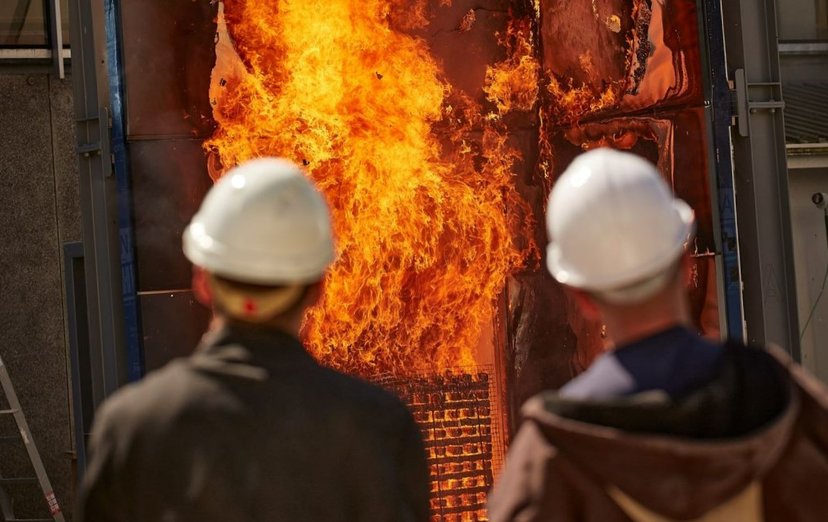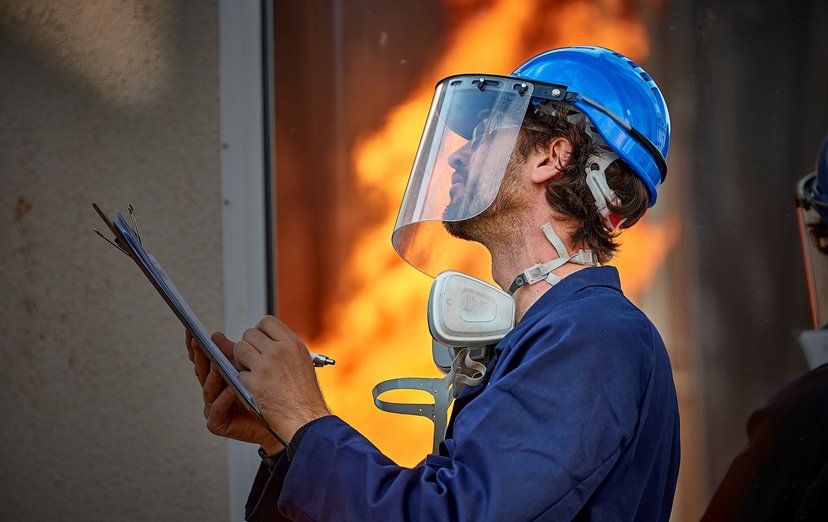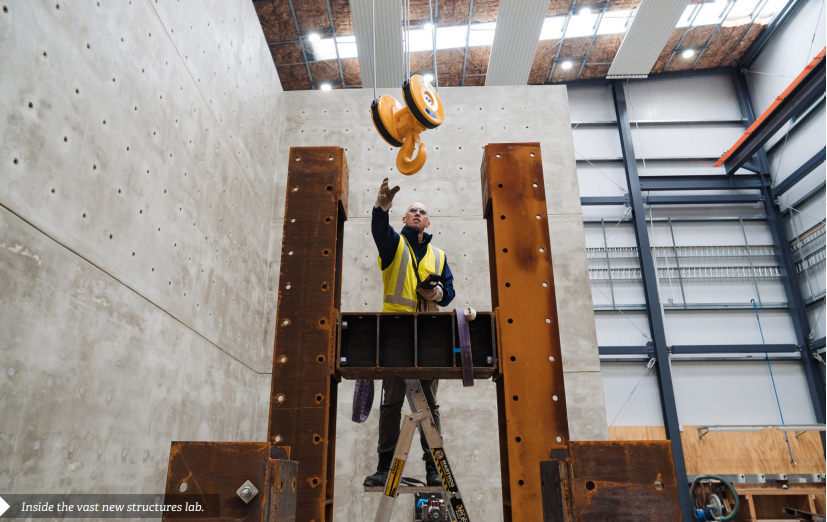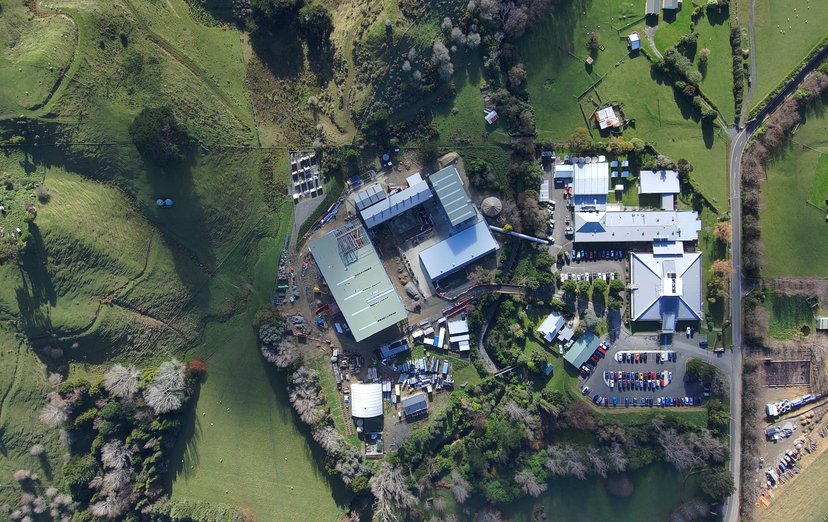Fire testing services at BRANZ
Looking to test a building product or system? Find out more about BRANZ’s fire testing services.
Over the past decade, we've seen the impacts of catastrophic building fires – most notably, the Grenfell Tower fire in London and, closer to home, the Loafers Lodge fire in Wellington. As we build with higher density in Aotearoa New Zealand, improving fire safety is more important than ever.
Our new fire laboratory and equipment will help improve understanding of fire risk in modern building practices.
It will enable BRANZ and our partners to better test how fire, smoke and carbon monoxide spread across multi-storey and higher-density buildings.
This work is crucial in supporting decision makers to help prevent future fire tragedies.
The fire laboratory will:
- test impacts of fire on multi-storey buildings
- simulate and measure fire spread
- analyse smoke density, carbon monoxide and carbon dioxide
- ensure close-to-realistic testing conditions to replicate high-density housing.
What it will feature:
- A 2,310 m² building footprint, about the size of five netball courts, and 22.5 m high roof, higher than five double decker buses. This will allow us to test and simulate the impact of fire on multi-storey structures and run multiple tests at the same time.
- A large-scale fire calorimetry and open burn hood (10 MW) to measure and analyse heat release and carbon monoxide and carbon dioxide production rates to evaluate the fire safety of entire buildings.
- Two full-scale cube furnaces and one pilot furnace, which are fixed fire test furnaces that can test both flat and vertical materials. This will allow multiple tests to happen in quick succession, meaning faster testing processing on a bigger scale.
- New façade testing to measure how fire spreads up the outside of multi-storey buildings.
- Individual client spaces to ensure confidentiality for our clients as well as space to set up products and systems for testing.
- Wet scrubber to process and clean exhaust emissions from fire testing, transforming this into clean steam. This reduces the environmental impact of this large-scale fire testing.
- State-of-the-art data acquisition system that can monitor the real-time response of building systems to fire testing as specified under the New Zealand Building Code.
- A climate control room to ensure close-to-realistic testing conditions for materials and systems.
-

Fire research
We investigate critical aspects of building fire safety design. Our research is used by New Zealand fire safety practitioners to predict fire and smoke spread.
Find out more -

Fire testing and safety engineering
BRANZ provides full consultancy and testing services for the performance of building products, materials and systems when exposed to fire.
Find out more -

Structural engineering lab
BRANZ's new structural engineering lab can test buildings up to 3 storeys high and can now simulate stronger earthquakes and more extreme winds.
Find out more -

New fire and structural engineering labs
BRANZ's new research and testing laboratories can simulate fire, earthquakes and extreme weather at scale and in close-to-realistic conditions.
Find out more
Updated: 4 July 2025